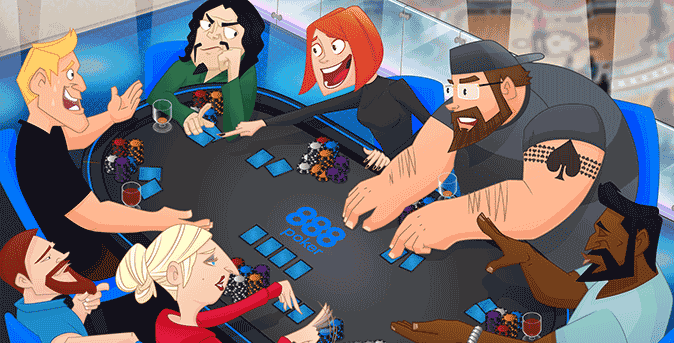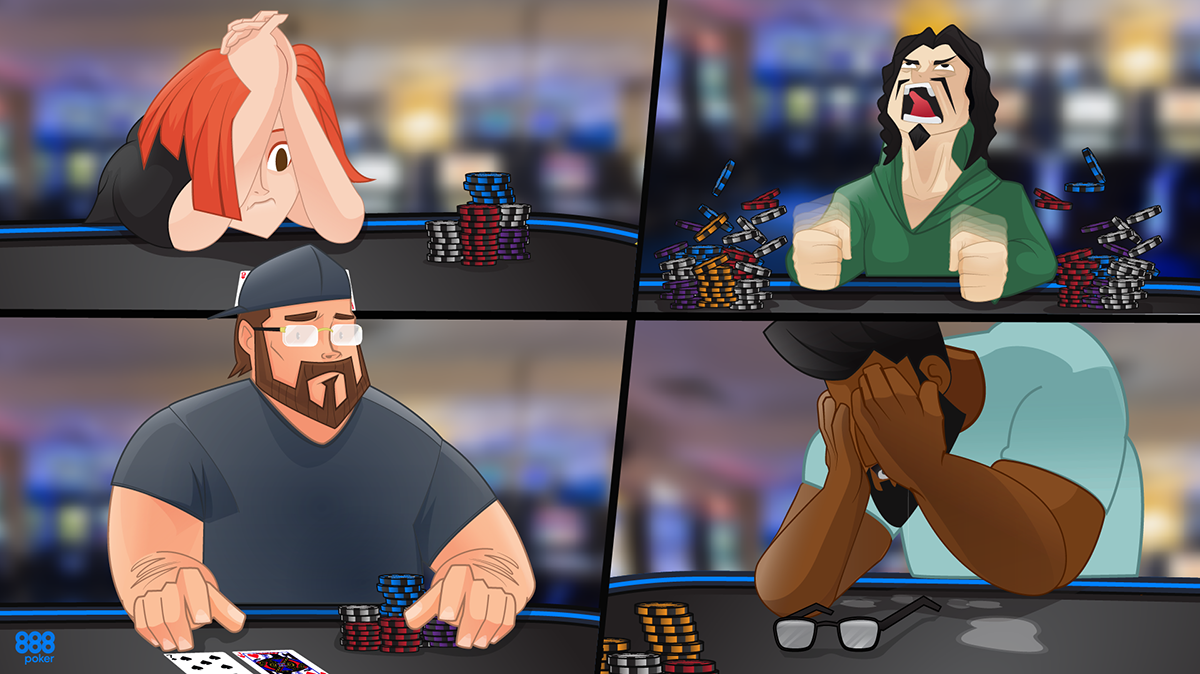The Perfect Poker Home Game
By Anonymous
|
|

Somewhere around 2008, I found myself in a poker game. I'm not entirely sure how it happened - or what the rules were for that matter - but it happened. Feigning competence, I sat in my university kitchen, with a bottle of Kopparberg and a microwaveable curry, as my flatmates promptly relieved me of my student loan.
These home game became a regular feature, and even though they cost me a new textbook or two, I loved every minute. Home games were my route into poker; they were fun and entertaining, and they are where I fell in love with the game.
If you do go down the tournament route, I think it's better to have several shorter turbo-style games instead of one long event. This setup minimises the time that bustees will have to sit around sulking, as they wait for the next game to start.
If you're striving for something serious, you can run a home poker league, but there's nothing stopping you making things a little more fun by adding side games and forfeits as well. You could make it mandatory to show a card if you win a hand, or punish anyone's “run good” by insisting anyone making a flush or better fetches the next round of drinks.
It's your game, choose your place and do as you wish.
Laws can differ from place to place, but in countries such as England and Scotland, it's perfectly legal to play poker (even with a stake in place) so long as it's played 'non-commercially', and the house doesn't make a profit from the game.
In Middle Eastern countries, such as Bahrain and Saudi Arabia, things are far different. Any stake-based game is forbidden since all forms of 'gambling' are strictly illegal. Suffice to say, if you are planning to whip out you home poker set, it's probably wise to check out the local gambling laws before shaking the cobwebs off Granny Ann's best antique card table!
The players in your game may prefer to sit in the garden or chill around a dining table with a few beers and a football game on in the background. Encourage anything reasonable that makes people happy because it's way harder to have fun when you're uncomfortable and nervous.
Look at my university game, for example, it was riddled with people chewing cigars, or wearing sunglasses and Halloween cowboy hats as they drank cheap 'whisky on the rocks'. This getup was what we thought real poker players did, and that made it fun for us.
Remember, if people enjoy themselves, they will play more often, and this is not only beneficial for your own Poker Night at Home, but also for the longevity of poker, as a whole.

You may have discussed hand histories together or read the same coaching articles. Perhaps you've just introduced them to the game, or know they have some kind of inferiority complex. Whatever it may be, each of these nuances adds an extra level of complexity to the game, and this can turn a simple game of poker into all out psychological warfare.
The key to thriving in this kind of environment lies in managing your emotions: Don't underestimate just how significantly the value of bragging rights and ego can cloud your opponent's judgements. Weirdly, nobody wants to crush you more than your friends, so stay calm and use what you know about each of them individually to make good poker decisions.
It might be worth tightening up too since people call way more often in these kinds of games. Remember, people hate to be bluffed at the best of times, so add the prospect of your friend waving three-high in your face to the mix, and you have a perfect recipe for a spite-call. If you want to crush your home game, value bet big and check your ego at the door.
Just like French kissing your hand in prep for that first base soiree or using your sister’s bra to perfect your skills on your favourite teddy bear, home games are the warm up, the practice, the prep for the real deal. They emphasise the fun and communal sides of poker while improving the overall longevity of the game by giving players the experience they need to venture into the broader world of poker.
Fun home poker games are profitable, entertaining and sociable, why wouldn't you give one a go?
These home game became a regular feature, and even though they cost me a new textbook or two, I loved every minute. Home games were my route into poker; they were fun and entertaining, and they are where I fell in love with the game.
What Is a Home Game?
In a nutshell, a poker home game is a private poker game, usually played in your house - though they can basically be played anywhere big enough to accommodate a flop (no pun intended!). Hold’em is the most common format, but there a range of different poker games to play at home.How to Play Poker at Home
The structure you use should mirror what you want the game to achieve: If you're playing a cash game, remember to explain the limits, straddling restrictions, and other home poker rules. Clarify the blind levels and rebuy options, if playing a tournament.If you do go down the tournament route, I think it's better to have several shorter turbo-style games instead of one long event. This setup minimises the time that bustees will have to sit around sulking, as they wait for the next game to start.
If you're striving for something serious, you can run a home poker league, but there's nothing stopping you making things a little more fun by adding side games and forfeits as well. You could make it mandatory to show a card if you win a hand, or punish anyone's “run good” by insisting anyone making a flush or better fetches the next round of drinks.
It's your game, choose your place and do as you wish.
Is It Legal to Play Poker at Home?
Since poker is technically no less of a game than something like Monopoly or chess, you should be able to play anywhere in the world if there's no money involved. Once you throw a stake into the mix, though, things can become a little more complex.Laws can differ from place to place, but in countries such as England and Scotland, it's perfectly legal to play poker (even with a stake in place) so long as it's played 'non-commercially', and the house doesn't make a profit from the game.
In Middle Eastern countries, such as Bahrain and Saudi Arabia, things are far different. Any stake-based game is forbidden since all forms of 'gambling' are strictly illegal. Suffice to say, if you are planning to whip out you home poker set, it's probably wise to check out the local gambling laws before shaking the cobwebs off Granny Ann's best antique card table!
What Makes a Good Home Poker Game?
Home games are all about fun, so hosting a good game is mainly down to accommodating who will be there. Remember, it's all about making everyone feel welcomed and relaxed. If you ever watched something like High Stakes Poker or Poker After Dark, you'll notice that they were played in a glamorous room with comfy sofas and attentive cocktail servers. This scenario is what worked for them.The players in your game may prefer to sit in the garden or chill around a dining table with a few beers and a football game on in the background. Encourage anything reasonable that makes people happy because it's way harder to have fun when you're uncomfortable and nervous.
Look at my university game, for example, it was riddled with people chewing cigars, or wearing sunglasses and Halloween cowboy hats as they drank cheap 'whisky on the rocks'. This getup was what we thought real poker players did, and that made it fun for us.
Remember, if people enjoy themselves, they will play more often, and this is not only beneficial for your own Poker Night at Home, but also for the longevity of poker, as a whole.

How to Beat Your Home Game
One of the best things about playing poker with friends involves the meta-game and psychology. Nowhere else in poker will you have such a complete understanding of your opponents. Since you’re playing with friends, you'll be armed with an understanding of each of their personalities, their poker experience, and even their financial status.You may have discussed hand histories together or read the same coaching articles. Perhaps you've just introduced them to the game, or know they have some kind of inferiority complex. Whatever it may be, each of these nuances adds an extra level of complexity to the game, and this can turn a simple game of poker into all out psychological warfare.
The key to thriving in this kind of environment lies in managing your emotions: Don't underestimate just how significantly the value of bragging rights and ego can cloud your opponent's judgements. Weirdly, nobody wants to crush you more than your friends, so stay calm and use what you know about each of them individually to make good poker decisions.
It might be worth tightening up too since people call way more often in these kinds of games. Remember, people hate to be bluffed at the best of times, so add the prospect of your friend waving three-high in your face to the mix, and you have a perfect recipe for a spite-call. If you want to crush your home game, value bet big and check your ego at the door.
Baby Steps
Just as with me, poker home games are how millions of people get into poker. Usually played for small or no stakes, they give people a taste of the game. Home games are poker's football academies; they're its ballet schools or the training wheels on its first BMX.Just like French kissing your hand in prep for that first base soiree or using your sister’s bra to perfect your skills on your favourite teddy bear, home games are the warm up, the practice, the prep for the real deal. They emphasise the fun and communal sides of poker while improving the overall longevity of the game by giving players the experience they need to venture into the broader world of poker.
Fun home poker games are profitable, entertaining and sociable, why wouldn't you give one a go?


